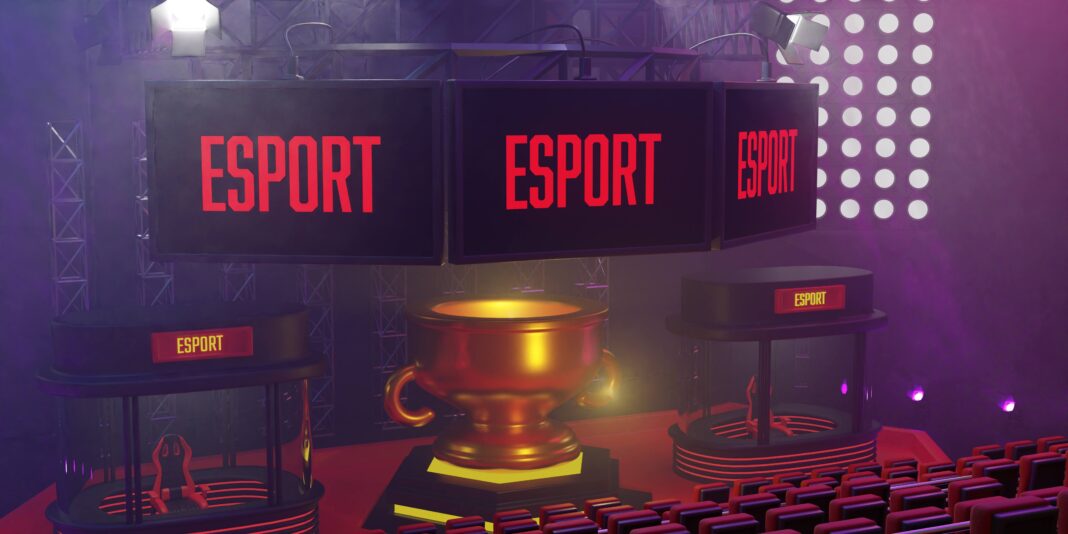Competitive gaming has evolved from small LAN tournaments with modest cash prizes to global events offering multi-million-dollar payouts. The rise of esports has introduced prize pools that rival—and in some cases surpass—those of traditional sports championships. This article provides an in-depth exploration of the largest esports prize pools ever recorded, analyzing the tournaments, games, and players behind these staggering figures.

We’ll examine how these prize pools are funded, their impact on players and organizations, and how they compare to other major sporting events. Additionally, we’ll look at the sustainability of these massive payouts and what the future holds for esports earnings.
1. Dota 2’s The International: The Unrivaled Leader in Esports Prizing
No tournament has consistently pushed the boundaries of esports prize money like Dota 2’s The International (TI). Organized by Valve Corporation, TI has shattered records year after year, thanks to its unique crowdfunding model.
The International 2021: A $40 Million Milestone
The 2021 edition of The International remains the highest-paying esports event in history, with a 40,018,195∗∗prizepool.Thewinningteam,∗∗TeamSpirit∗∗,tookhome∗∗40,018,195∗∗prizepool.Thewinningteam,∗∗TeamSpirit∗∗,tookhome∗∗18.2 million, the largest single payout for any esports squad.
How The International’s Prize Pool Works
Unlike most tournaments, which rely on sponsorships and entry fees, TI’s prize pool is crowdfunded by the Dota 2 community through the Battle Pass system. Here’s how it works:
- Valve releases an in-game Battle Pass before each TI, offering exclusive cosmetics, challenges, and rewards.
- 25% of all Battle Pass sales go directly into the prize pool.
- Stretch goals and community engagement drive contributions, leading to exponential growth.
This model has proven incredibly successful, with TI’s prize pool increasing every year since its introduction in 2013.
Comparing The International to Traditional Sports
To put TI’s $40 million prize pool into perspective:
- Wimbledon 2021 total prize money: $45 million
- UEFA Champions League 2021 winner payout: $22 million
- The Masters (Golf) 2021 total purse: $11.5 million
Dota 2’s crowdfunded prize pool not only competes with but often exceeds the payouts of prestigious sporting events.
The Impact on Players and Teams
Winning The International is a life-changing moment for players. Consider:
- Johan “N0tail” Sundstein (two-time TI winner) is the highest-earning esports player of all time, with over $7 million in winnings.
- Teams from smaller regions (e.g., Team Spirit from Eastern Europe) have broken through, proving that underdogs can triumph.
- Retirement and financial security: Many TI winners retire early, having secured generational wealth from a single tournament.
However, the pressure is immense—losing at TI can mean missing out on millions, leading to intense competition and high-stakes drama.
2. Fortnite World Cup 2019: Battle Royale’s Breakout Moment
Epic Games’ Fortnite World Cup 2019 was a cultural phenomenon, blending competitive gaming with mainstream entertainment. With a $30 million total prize pool, it remains one of the most lucrative esports events ever.
The $3 Million Solo Champion: Kyle “Bugha” Giersdorf
The Solo Finals winner, 16-year-old Bugha, became an overnight millionaire, taking home $3 million—more than the winners of golf’s U.S. Open or tennis’ Wimbledon that year.
How Fortnite’s Prize Distribution Worked
The $30 million was split across multiple events:
- Solo Finals: $3M for 1st place
- Duos Finals: $3M split between two players
- Creative and Celebrity Showmatches: Smaller prizes
This structure allowed both competitive players and content creators to participate, broadening Fortnite’s appeal.
Marketing Genius: How Epic Games Used the World Cup
The Fortnite World Cup wasn’t just about competition—it was a marketing masterclass:
- In-game tie-ins: Exclusive cosmetics and challenges kept players engaged.
- Celebrity appearances: Marshmello, Drake, and other stars participated in showmatches.
- Mainstream media coverage: ESPN, BBC, and other outlets covered the event, bringing esports to a wider audience.
The Aftermath: Why Fortnite’s Prize Pools Declined
Despite its success, Epic Games reduced future prize pools, shifting focus to creator ecosystems and in-game events. Reasons include:
- High costs: Sustaining $30M+ events annually was unsustainable.
- Shift to online tournaments: The COVID-19 pandemic forced changes.
- Focus on casual players: Epic prioritized keeping the broader player base engaged over hardcore esports.
Still, the 2019 World Cup remains a landmark moment in competitive gaming history.
3. League of Legends World Championship: Stability Over Record-Breaking Payouts
Riot Games’ League of Legends World Championship (Worlds) is the most-watched esports event globally, but its prize pools are smaller than Dota 2’s. Why?
2022 Worlds: $2.25 Million Base + Crowdfunding
Unlike Dota 2, LoL’s prize pool comes from:
- A fixed base amount ($2.25M in 2022)
- 25% of sales from specific in-game skins (e.g., “Championship” skins)
The winning team, DRX, earned $489,500, a fraction of what Dota 2 TI winners receive.
Why Doesn’t LoL Have Bigger Prizes?
Riot Games prioritizes long-term stability over massive one-time payouts:
- Franchised leagues (LCS, LEC, LCK): Players earn salaries (often $300K+ in NA/EU).
- Revenue sharing: Teams get cuts from merchandise and sponsorships.
- Global events: Mid-Season Invitational (MSI), regional playoffs, and Worlds ensure year-round competition.
This model ensures players have steady incomes, but it limits the “life-changing” prize pools seen in Dota 2 or Fortnite.
LoL’s Viewership Dominance
Despite smaller prizes, Worlds 2022 peaked at 73 million viewers, dwarfing The International’s numbers. This makes LoL esports more attractive to sponsors, even if prize money isn’t record-breaking.
4. Counter-Strike: Majors and the Sticker Economy
CS:GO’s Majors have prize pools ranging from $1-2 million, but the real money comes from Valve’s sticker system.
PGL Major Stockholm 2021: $2 Million Prize Pool
Natus Vincere (Na’Vi) won $1 million, but the bigger story was the return of crowd-funded stickers.
How Stickers Fund CS:GO Esports
- Fans buy team stickers to support organizations.
- 50% of sticker revenue goes to the teams, 50% to the prize pool.
- Popular teams (e.g., FaZe Clan, Astralis) earn millions from stickers alone.
This system ensures long-term financial support beyond tournament winnings.
5. The Future of Esports Prize Pools
Will Crowdfunding or Sponsorships Dominate?
- Dota 2’s model (fan-funded) produces huge payouts but relies on player spending.
- LoL’s model (sponsors + salaries) is more stable but less explosive.
Player Advocacy and Revenue Sharing
Some players, like N0tail, argue for NBA-style revenue sharing, where competitors get a cut of league profits.
New Games Entering the Scene
- Valorant: Riot’s tactical shooter is growing fast, with $1M+ tournaments.
- Apex Legends: Uses a mix of crowdfunding and publisher funding.
FAQ
Q: Which esport has paid out the most in total prizes?
A: Dota 2, with over $300 million awarded across tournaments.
Q: Do esports players pay taxes on winnings?
A: Yes. In the U.S., winnings are taxed as income (up to 37% federal + state taxes).
Q: Why did Fortnite’s prize pools drop after 2019?
A: Epic Games shifted focus to casual players and in-game events over competitive esports.
Q: Can smaller esports compete with these prize pools?
A: Most can’t, but games like Rocket League and Street Fighter have niche but passionate scenes.
Conclusion
The biggest esports prize pools reflect a mix of community passion, corporate investment, and innovative funding models. While Dota 2’s The International leads in raw numbers, other games like LoL and CS:GO prioritize sustainability.
For aspiring players, understanding these ecosystems is crucial—whether chasing TI’s millions or securing a stable salary in franchised leagues.
What’s Next?
Will Valorant or Apex Legends challenge Dota 2’s dominance? Or will player unions reshape revenue sharing? The future of esports payouts is still unfolding.

